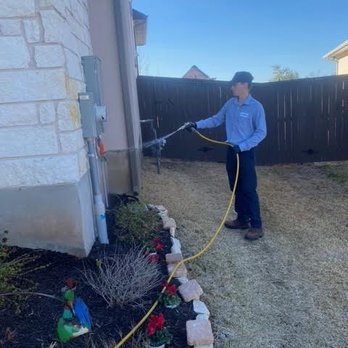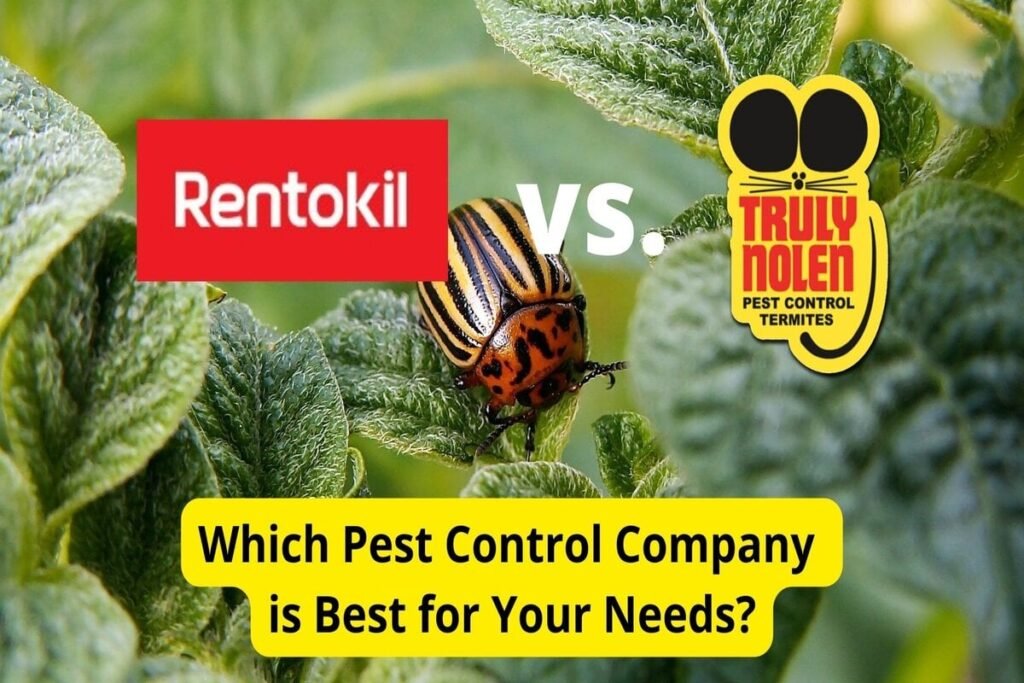Have you ever wondered if termite treatment could potentially harm humans? Well, in this article, we will explore the question: “Is termite treatment harmful to humans?” The safety of using termite treatments, specifically in relation to human health, is a concern that many homeowners and professionals alike have. Join us as we delve into this topic, providing you with valuable insights into the potential risks and precautions associated with termite treatment.
Understanding Termite Treatments
Explanation of termite treatments
Termite treatments refer to the various methods and techniques used to eliminate and prevent termite infestations in homes and other structures. These treatments are essential as termites can cause significant damage to the structure of a building, leading to costly repairs. Effective termite treatments aim to eradicate existing termites and create a barrier to prevent future infestations.
Common types of termite treatments
There are several common types of termite treatments available, each with its own advantages and disadvantages. The most widely used treatments include liquid termiticides, bait systems, and wood treatments. Liquid termiticides are applied to the soil or directly to the infested areas, creating a chemical barrier that kills or repels termites. Bait systems involve placing termite bait stations in strategic locations, which termites feed on and carry back to their colony, thus eliminating the entire colony. Wood treatments, on the other hand, involve the application of chemical treatments directly to wood to protect it from termite damage.
Chemicals Used in Termite Treatments
Introduction to Termite treatment chemicals
Chemicals play a crucial role in termite treatments by effectively eradicating termites and preventing further infestations. The chemicals used in termite treatments are typically classified as termiticides, designed specifically for the control of termites. These chemicals work by either killing termites directly upon contact or by disrupting their nervous system, rendering them unable to feed or reproduce.
Commonly used chemicals in termite treatments
Various termiticides are commonly used in termite treatments, including chlorpyrifos, bifenthrin, imidacloprid, and fipronil. These chemicals have been extensively researched and studied for their effectiveness in termite control. They are generally classified as low toxicity to humans and pets when used according to the recommended dosage and application methods. However, it is important to follow the instructions provided by professionals and take necessary safety measures during and after the treatment to minimize any potential health risks.
Impact of Termite Treatments on Human Health
Initial short term effects
While termite treatments are generally considered safe when used correctly, some individuals may experience short-term effects such as skin irritation, respiratory discomfort, or eye irritation due to exposure to termiticides. These effects are typically mild and subside once the exposure is reduced. It is important to ventilate the treated areas properly and avoid direct contact with the chemical solutions to minimize any potential short-term health effects.
Long term effects
Extensive research has been conducted to assess the long-term effects of termiticide exposure on human health. The results indicate that when used in accordance with the manufacturer’s recommendations, the risk of long-term adverse effects is minimal. However, prolonged and excessive exposure to termiticides may lead to potential health risks. It is crucial to consult professionals and follow their guidance to ensure the safe and proper use of termiticides.
Cases and studies on health effects
Several studies have been conducted to evaluate the potential health effects of termite treatments on humans. These studies have consistently shown that when used correctly, termiticides do not pose significant risks to human health. However, it is essential to consider individual sensitivity and take necessary precautions to minimize any potential risks associated with termite treatments.
Termite Treatment and Children
Effects of termite treatments on children
Children may be more susceptible to the potential health effects of termite treatments due to their smaller size and developing immune systems. It is important to ensure that children are kept away from treated areas during and after termite treatments to minimize their exposure. The chemicals used in termite treatments should be stored securely and out of reach of children to prevent accidental ingestion or contact.
Safety measures for children during termite treatments
To ensure the safety of children during termite treatments, it is advised to evacuate them from the treated premises until the chemicals have sufficiently dissipated. If evacuation is not possible, it is essential to isolate the treated areas and prevent the children from entering those spaces. Additionally, thorough cleaning of surfaces and toys that may have come into contact with termiticides is recommended before allowing children back into the treated area.
Termite Treatment and Pets
Potential risks for pets
Pets, like children, can be more vulnerable to the potential risks associated with termite treatments. Exposure to termiticides may lead to adverse effects such as skin irritation, respiratory issues, or gastrointestinal distress in pets. It is important to be mindful of their safety and take necessary precautions to minimize their exposure during termite treatments.
Safety measures for pets during termite treatments
To protect pets during termite treatments, it is recommended to remove them from the treated area until the chemicals have dissipated. If relocation is not feasible, pets should be kept away from the treated surfaces and provided with a safe and well-ventilated space. It is also crucial to prevent pets from ingesting or coming into direct contact with the chemicals used in termite treatments.
Alternatives to Chemical Termite Treatments
Natural termite treatments
For individuals concerned about the use of chemicals, there are natural alternatives available for termite treatments. These alternatives involve the use of substances such as orange oil, neem oil, or biological control methods utilizing nematodes and fungi. While natural termite treatments may offer an eco-friendly option, they may not be as effective as chemical treatments and require careful consideration of their specific application requirements.
Non-toxic termite treatments
In addition to natural alternatives, non-toxic termite treatments can also be considered. Heat treatments using specialized equipment can effectively eliminate termites without the use of chemicals. This method involves raising the temperature of the infested areas to a level that is lethal to termites but safe for humans and pets. Non-toxic termite treatments provide a viable option for those concerned about chemical exposure.
Safety Measures during Termite Treatments
Prior preventive measures
To enhance the effectiveness and safety of termite treatments, it is crucial to implement preventive measures. These include regular inspections, maintaining proper ventilation and drainage, minimizing wood-to-soil contact, and storing firewood away from structures. By addressing conducive conditions and taking preventive actions, the need for extensive termite treatments can be reduced.
What to do during the treatment
During termite treatments, it is important to follow the instructions provided by professionals. This may include evacuating the premises temporarily, removing pets and children from the treated areas, and relocating or covering any food items that may be at risk of contamination. It is essential to cooperate with the professionals and ensure their recommended safety measures are implemented.
Post-treatment safety measures
After termite treatments, certain safety measures should be followed to ensure a safe environment. These primarily involve thorough cleaning of treated surfaces and proper disposal of any residual materials, following the guidelines provided by the pest control professionals. Proper ventilation and monitoring for any signs of further termite activity are also recommended.
Working With Professionals for Termite Treatment
Choosing a reliable pest control service
When considering termite treatments, it is important to select a reliable and experienced pest control service. Research and compare different service providers, considering factors such as their track record, reputation, licensing, and certification. Obtaining multiple quotes and asking for references can help in making an informed decision.
Questions to ask your termite treatment professional
When consulting with a termite treatment professional, it is beneficial to ask specific questions to ensure a comprehensive understanding of the treatment process and any potential risks. Questions may include inquiring about the specific chemicals to be used, their application techniques, expected duration of treatment, and any necessary safety precautions. It is essential to have open and clear communication with the professionals to address any concerns or queries.
Environmental Impact of Termite Treatments
Effects on soil and water
Termiticides, being chemicals, have the potential to impact soil and water quality if not used responsibly. It is important to choose termiticides that have low environmental toxicity and follow application guidelines to minimize runoff or leaching into surrounding soil or water sources. Selecting treatments that have minimal impact on the environment while effectively targeting termites is crucial for sustainable termite control.
Impact on non-target organisms
While termiticides are intended to target termites specifically, there is a possibility of unintended harm to non-target organisms. It is essential to use termiticides with low toxicity to non-target organisms and employ application techniques that minimize contact with beneficial insects, plants, and animals. Responsible use of termiticides can help minimize the impact on the broader ecosystem.
Know Your Rights and Regulations for Termite Treatments
Current regulations in termite treatments
Termite treatments are subject to regulations and guidelines to ensure the safe and effective use of termiticides. These regulations may differ between regions, so it is important to be familiar with the specific regulations in your area. This includes understanding requirements related to licensing, application techniques, disposal of chemical waste, and reporting of termite treatments.
Responsibilities of pest control companies
Pest control companies have a responsibility to operate within the framework of regulations and guidelines. This includes employing trained and licensed professionals, using approved and registered termiticides, following safety protocols, and providing clear instructions and safety information to clients. It is important to choose a reputable pest control company that prioritizes the safety of clients, the environment, and their own employees.
In conclusion, termite treatments are essential for protecting structures from the damage caused by termites. While the chemicals used in these treatments have been researched and deemed safe when used correctly, it is crucial to follow safety measures, especially when it comes to children and pets. Alternatives to chemical treatments, such as natural and non-toxic options, provide alternatives for those seeking eco-friendly solutions. Working with reliable professionals, understanding the environmental impact, and being aware of regulations and rights can help ensure an effective and safe termite treatment process.
Your Expert in Animal Control and Extermination. Trust our experience for humane, effective pest management, protecting your property and ensuring peace of mind with Michael S.




